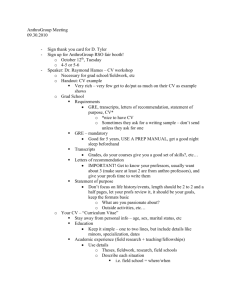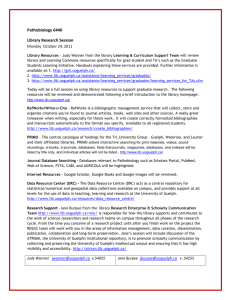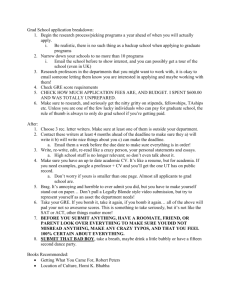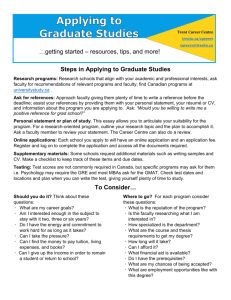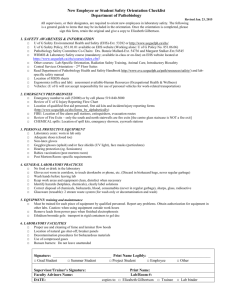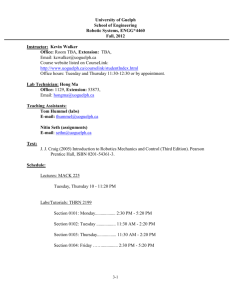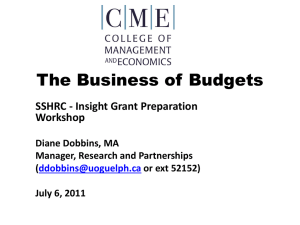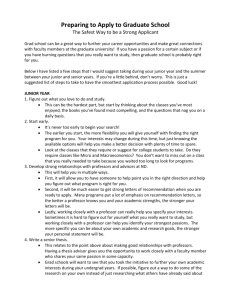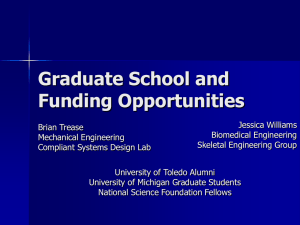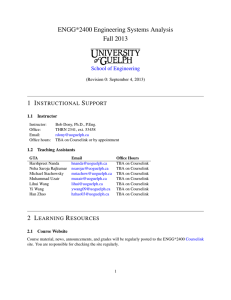File - University of Guelph Psychology Society
advertisement
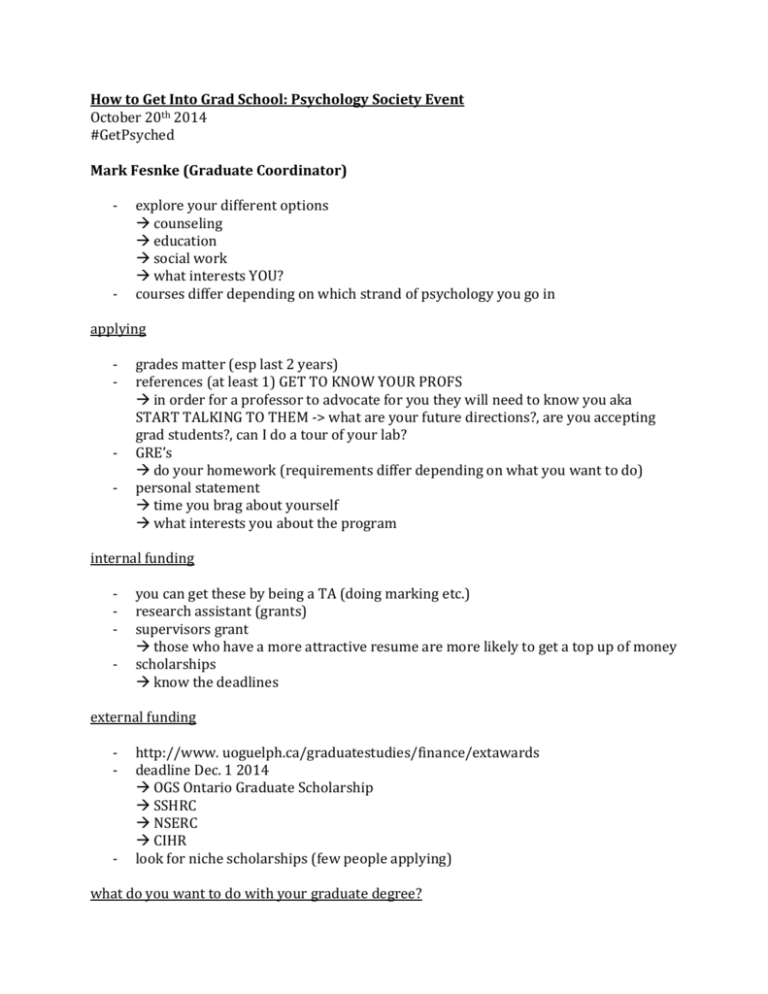
How to Get Into Grad School: Psychology Society Event October 20th 2014 #GetPsyched Mark Fesnke (Graduate Coordinator) - - explore your different options counseling education social work what interests YOU? courses differ depending on which strand of psychology you go in applying - - grades matter (esp last 2 years) references (at least 1) GET TO KNOW YOUR PROFS in order for a professor to advocate for you they will need to know you aka START TALKING TO THEM -> what are your future directions?, are you accepting grad students?, can I do a tour of your lab? GRE’s do your homework (requirements differ depending on what you want to do) personal statement time you brag about yourself what interests you about the program internal funding - you can get these by being a TA (doing marking etc.) research assistant (grants) supervisors grant those who have a more attractive resume are more likely to get a top up of money scholarships know the deadlines external funding - - http://www. uoguelph.ca/graduatestudies/finance/extawards deadline Dec. 1 2014 OGS Ontario Graduate Scholarship SSHRC NSERC CIHR look for niche scholarships (few people applying) what do you want to do with your graduate degree? - academia practice clinical work consulting you could ask a potential supervisor what their past students are doing DO’s - speak to profs/TAs get experience work toward thesis study for GRE’s pick an exciting topic read articles and work on your writing skills (use the resources on campus) DONT’S - don’t have a generic application be too modest feign interests wait until the last minute ignore budgeting don’t take it too personally Harvey Marmurek (applied cognitive/neuroscience) - very competitive looking at transcripts (A- average in last two years) contact potential advisors (who’s research are you interested in) Barbara Morrongiello (Clinical) - not unusual to take more than one year for acceptance takes a long time to complete a clinical degree (6-7 years) extremely competitive 6 or 7 years of training without being paid don’t favour people who leave after masters extremely stressful (courses, research, training) have to be able to manage stress really effectively don’t waste time applying unless you’re 100% some alternatives (social work, organizational clinical work -> not as research intensive) what you need - critical statement is the most critical thing selecting a supervisor is important (being in touch ahead of time) plan ahead for GRE’s high GPA looking for commitment honours thesis might work better to take a year off to think about it take a broad range of courses Ben Giguere (Applied Social) - big difference between learning about it and making a career out of it very broad program get experience get into labs -> you want to know if you’ll like it figure out a general topic that you’re interested in some kind of social background that shows you can understand the social world in a meaningful way social skills are important Harjinder Gill (Industrial Organizational) - Focus on stats + research methods IO can help companies with problems like how to deal with a merger Lots of job opportunities You could get into consulting Most programs encourage people to stay for PhD A- average GRE scores Get started early A masters in industrial relation can be a substitute College could be an alternative as well We favour research experience in any area Have research / letters or reference Do your homework mfenske@uoguelph bmorrong@uoguelph bgiguere@uoguelph hmarmurek@uoguelph gill@psy.uoguelph
